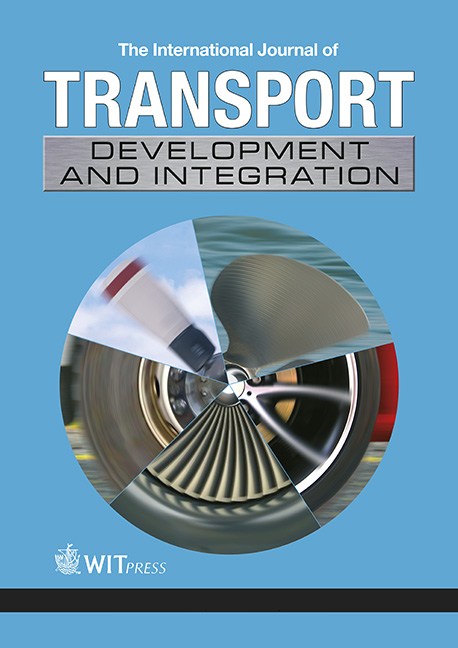Plug-in hybrid electric vehicles (PHEVS): A possible perverse effect generated by environmental policies
Price
Free (open access)
Volume
Volume 3 (2019), Issue 3
Pages
11
Page Range
259 - 270
Paper DOI
10.2495/TDI-V3-N3-259-270
Copyright
WIT Press
Author(s)
Pedro Pablo Ramírez Sánchez, Alassane Ballé Ndiaye, & Roberto Rendeiro Martín-Cejas
Abstract
The automotive industry is one of the largest polluters, affecting air quality in urban areas. For this reason, the effect of the public policies on the sector is very important in economic and social terms. In this sense, one of the policies has been the subsidies for efficient vehicles where the plug-in hybrid electric vehicles (PHEVs) are included. Subsidies are very important for some of these vehicles, with a real price which is not competitive in comparison with internal combustion (IC) cars. As an example, the sales have dropped in Denmark in 2016 after the incentive reduction. However, in some cases, policies designed to regulate the situation can create some perverse effects due to the complexity of this issue. This type of vehicle is powered by an IC engine in combination with one or more electric motors using energy stored in battery packs. The real efficiency of this kind of vehicle depends strongly on the responsibility of the owner. Only if the car has been plugged in, their batteries have been fully charged and also the car is driven under “efficient mode”, the emissions will reduce significantly. Considering the fuel consumption gap between manufacturer declaration and real drive test and the emissions in different pollutants of the PHEVs in comparison with IC cars, the aim of this article is to show a new possible perverse effect generated by them. This has happened recently with diesel cars, favoured by policies focused in CO2 emission, generating NOX high level in the urban area air quality.Finally, we highlight the main result and conclude emission cost implemented in fuel tax as ‘the first best’ in environmental policies.
Keywords
air quality, CO2 , environmental policy, internal combustion vehicles (IC), NOX , plug-in hybrid electric vehicles (PHEVs).




